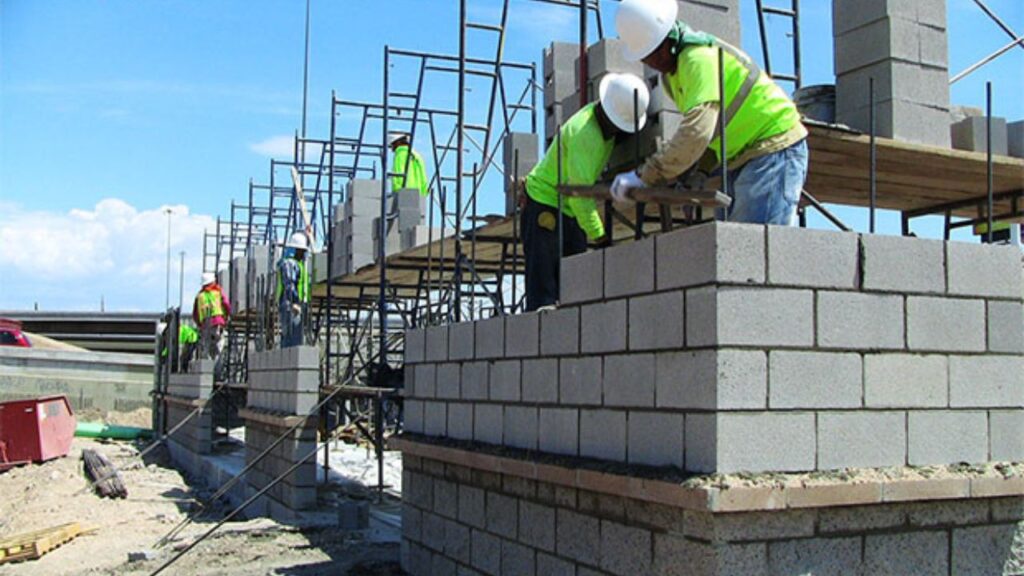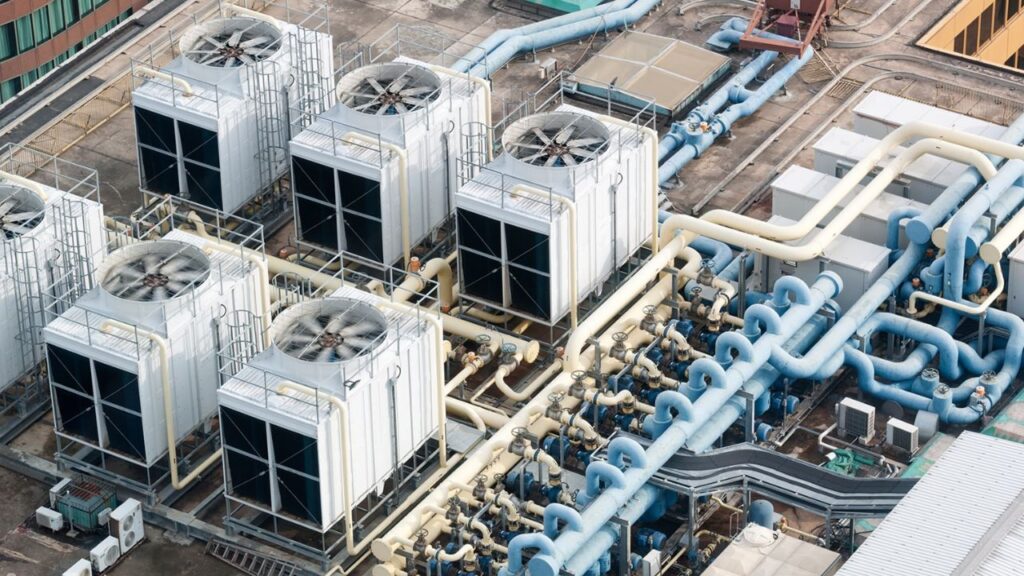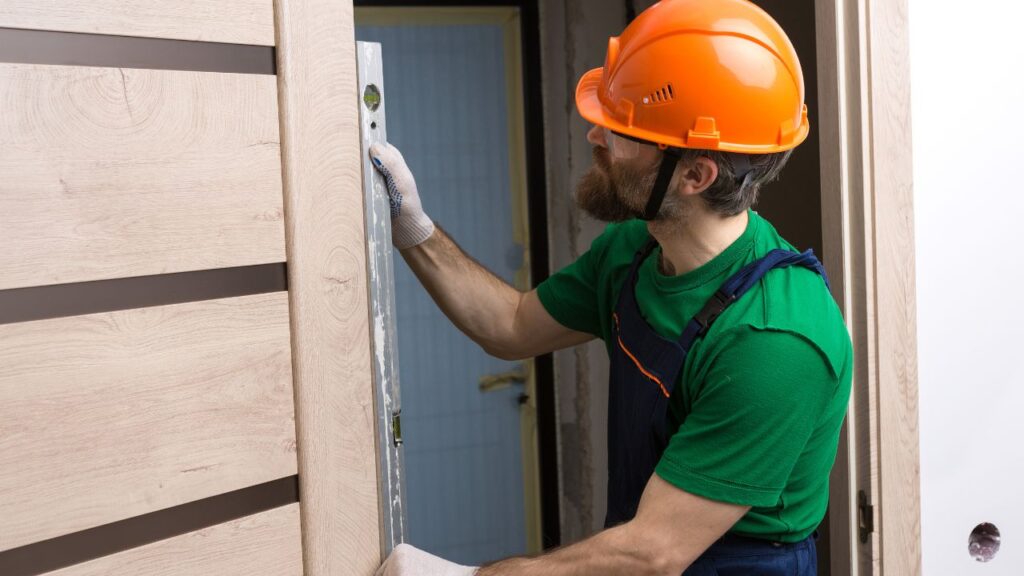- Homepage
- Blogs
Electricity Cost Estimator in Jacksonville Beach , FL
Leading provider of electricity estimating.
Electrical systems are the backbone of any modern building, powering everything from lighting to advanced home automation systems. These systems provide essential services, ensuring that buildings function efficiently and safely. In Jacksonville Beach, accurate electrical cost estimation is vital for successful project planning, whether for residential, commercial, or industrial projects. Proper planning helps prevent unexpected expenses and ensures high-quality results. This guide provides a comprehensive overview of electrical cost factors, average pricing, and tips to manage expenses effectively, tailored specifically to the unique needs of the Jacksonville Beach region.
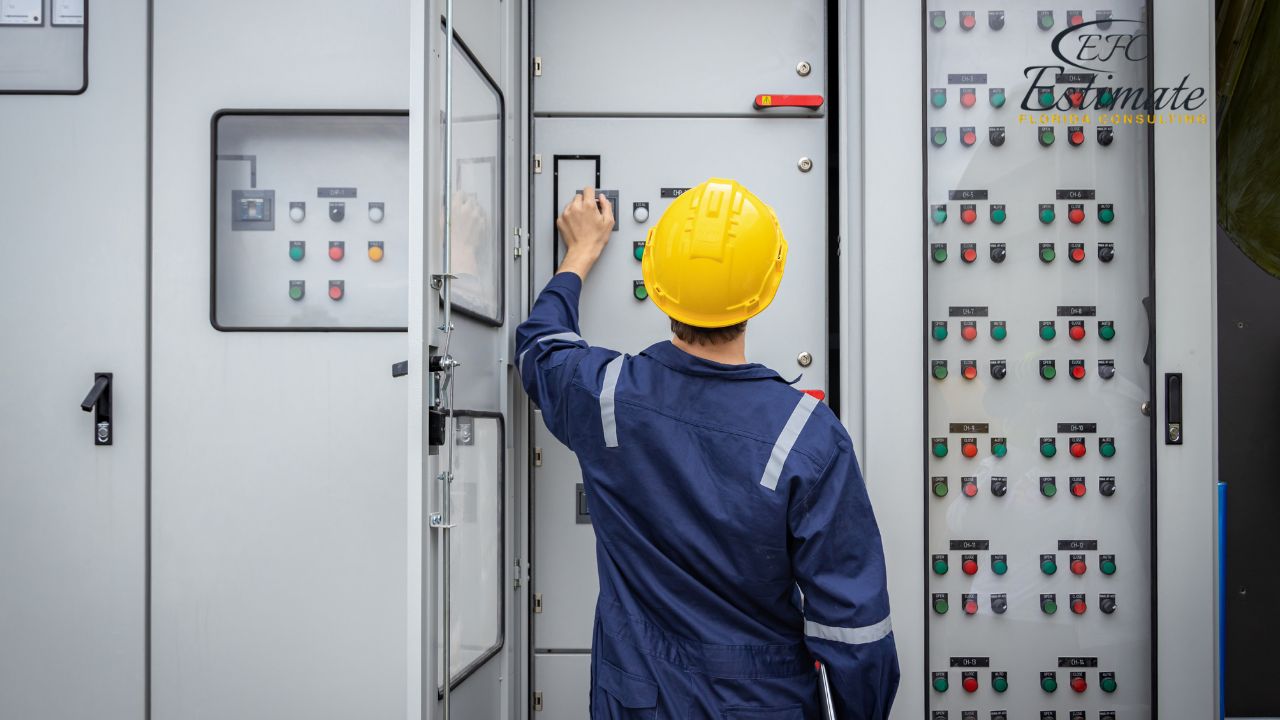
Average Electrical Costs in Jacksonville Beach
Project Type | Estimated Cost Range (per square foot) |
Residential Wiring | $2.00 – $4.00 |
Commercial Wiring | $3.00 – $6.00 |
Smart Home Automation | $5.00 – $15.00 |
Panel Upgrades | $1,500 – $3,500 per panel |
Lighting Installation | $100 – $500 per fixture |
Electrical project costs depend on several factors, including the size of the building, complexity of the system, materials used, and labor rates. Customized solutions, such as solar integration or advanced automation, may increase overall expenses but offer significant long-term benefits like energy savings and enhanced convenience.
Key Factors Influencing Electrical Costs
1. Type of Electrical System
The type of electrical system significantly impacts the cost and functionality of the project. Each type of system serves different needs:
- Residential Wiring: Standard wiring for homes typically costs $2 to $4 per square foot. It includes basic outlets, switches, and standard fixtures. High-end projects with luxury fixtures or smart home systems may cost more due to the need for advanced technology and labor.
- Commercial Wiring: Requires more robust materials and advanced layouts to handle higher power demands. Costs range from $3 to $6 per square foot and often include specialized lighting and equipment connections.
- Industrial Systems: Complex installations involving high-voltage systems and heavy machinery connections can exceed $8 per square foot. These systems require expert knowledge and specialized equipment.
- Solar Systems: Solar panel installations cost $10,000 to $30,000, depending on the size and capacity required. These systems reduce dependency on the grid and offer long-term energy savings, though they require significant initial investment.
2. Size of the Project
Larger buildings require more extensive wiring, additional panels, and multiple fixtures, which increases the cost. For example, a large commercial office may require multiple breaker panels and thousands of feet of wiring. Accurate measurements and detailed blueprints are essential for proper budgeting and avoiding material waste.
3. Labor Costs
Labor costs in Jacksonville Beach typically range from $50 to $120 per hour for licensed electricians. Skilled labor ensures compliance with building codes and proper installation, which is especially critical for complex systems like industrial machinery or smart home setups. Complex installations, such as automation systems or high-capacity panels, demand more time and expertise, increasing labor costs proportionally.
4. Materials and Equipment
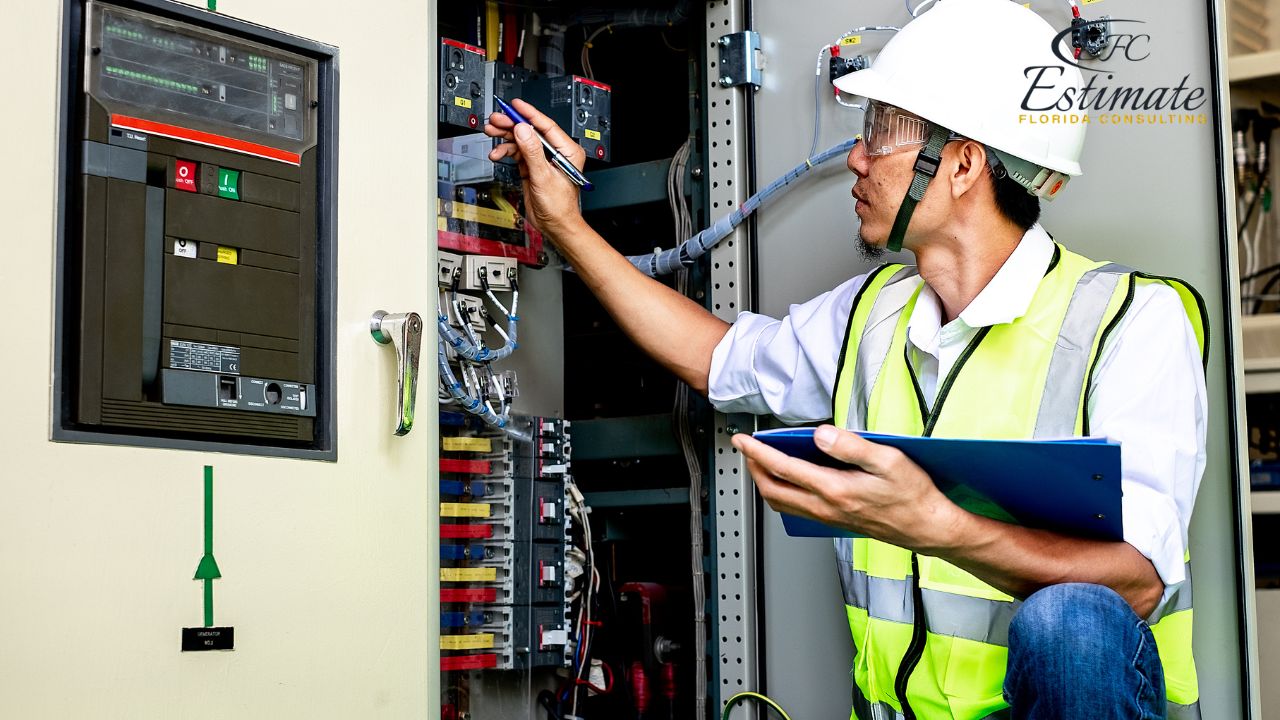
The cost of materials like copper wiring, conduits, and circuit breakers varies based on quality and market demand. High-quality materials provide better durability and performance but come at a higher cost. For specialized systems, premium components like gold-plated connectors or heavy-duty circuit breakers can significantly increase expenses.
5. Compliance and Permits
Electrical work must meet strict local building codes and standards to ensure safety and efficiency. Permit fees in Jacksonville Beach typically range from $100 to $500, depending on the scope and complexity of the project. Regular inspections are also required to verify compliance and prevent potential safety hazards.
Electrical Cost Estimation by Project Type
Residential Projects
Residential electrical projects in Jacksonville Beach typically cost between $5,000 and $20,000, depending on the size and features of the property:
- New Home Construction: Costs range from $2 to $4 per square foot for basic wiring, including standard outlets and switches. Projects with energy-efficient solutions or luxury lighting may fall on the higher end.
- Home Renovations: Upgrades to existing systems, such as replacing outdated wiring or adding fixtures, cost $3 to $5 per square foot. These projects may also include upgrading breaker panels for increased capacity.
- Smart Home Integration: Advanced automation systems cost $5 to $15 per square foot, covering features like remote-controlled lighting, integrated security systems, and smart thermostats. These upgrades enhance convenience and energy efficiency.
Get Acquainted with Estimation
Secrets of Successful Bids: Advanced Tips for Construction Managers
Save $300K on Your Next Construction Project
Commercial Projects
Commercial electrical installations range from $10,000 to $200,000, depending on the size and complexity of the project:
- Office Buildings: Costs range from $3 to $6 per square foot, including systems for lighting, outlets, and high-speed internet connections.
- Retail Stores: Specialty lighting and custom power layouts cost $5 to $8 per square foot, especially for stores requiring visually appealing display lighting.
- Warehouses: Basic wiring for functional lighting and machinery connections costs $2.50 to $4.50 per square foot. Larger warehouses may require additional panels and industrial-grade components.
Advanced Electrical Options
1. Smart Home Systems
Smart home systems integrate various technologies, such as automated lighting, security, and climate control, to enhance convenience and energy efficiency. These systems cost between $5 and $15 per square foot to install, depending on the complexity and brand of the technology used.
2. Renewable Energy Integration
Solar panel systems are a popular choice for both residential and commercial properties in Jacksonville Beach due to abundant sunlight. Installation costs range from $2.50 to $4.50 per watt, with additional costs for battery storage systems ranging from $10,000 to $20,000. These systems reduce energy costs and provide backup power during outages.
3. Backup Generators
Backup generators provide reliable power during outages, which is especially valuable in hurricane-prone areas. Costs range from $5,000 to $10,000 for residential systems, while larger commercial generators may cost significantly more depending on capacity.
4. Energy-Efficient Upgrades
LED lighting and energy-efficient appliances offer long-term savings by reducing electricity consumption. Installation costs range from $2 to $5 per square foot, making these upgrades a cost-effective choice for reducing utility bills.
5. Industrial Automation Systems
Automation systems for industrial facilities improve operational efficiency and reduce labor costs. Costs range from $10,000 to $100,000, depending on the system’s size and features. These systems often include robotics, automated machinery controls, and advanced monitoring systems.
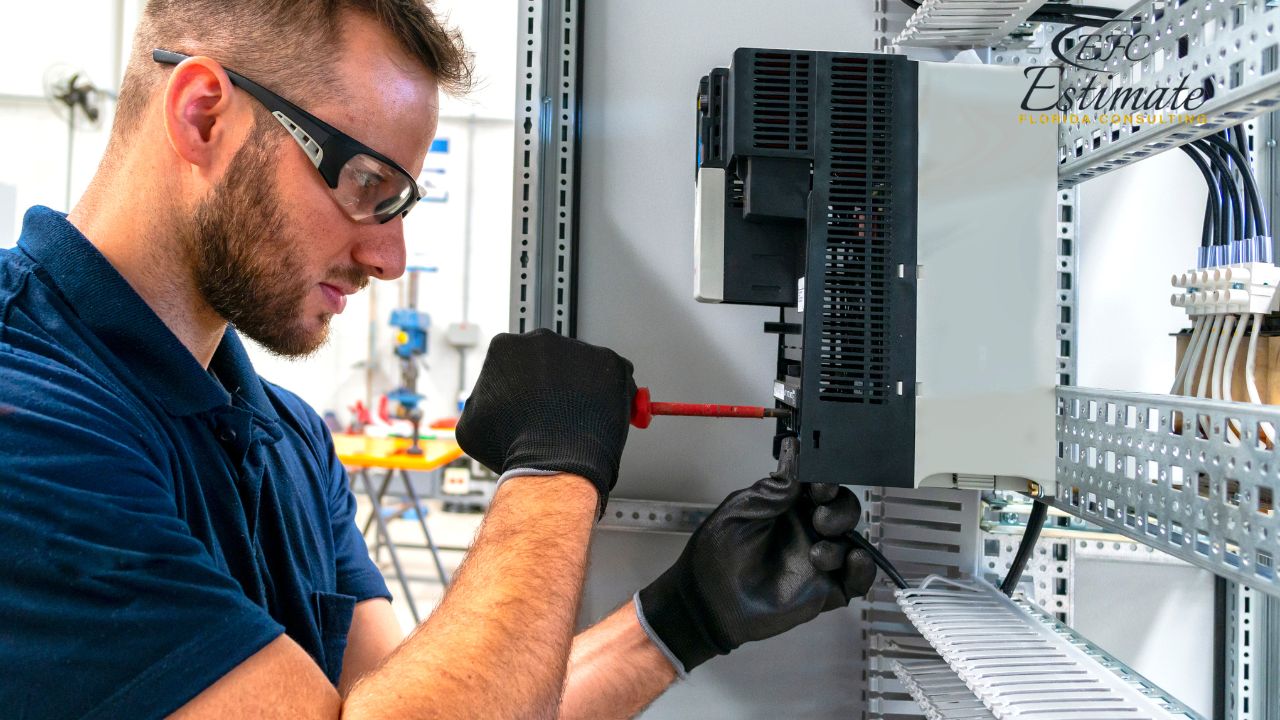
Cost Breakdown of Electrical Components
Component | Cost Range |
Wiring and Conduits | $1.00 – $3.00 per sq. ft. |
Circuit Breaker Panels | $500 – $2,000 per panel |
Outlets and Switches | $50 – $200 per unit |
Lighting Fixtures | $100 – $500 per fixture |
Labor | $50 – $120 per hour |
Energy Efficiency and Sustainability in Electrical Systems
1. Benefits of Energy Efficiency
Investing in energy-efficient electrical systems reduces utility bills, decreases environmental impact, and increases property value. Energy-efficient solutions, such as smart thermostats and LED lighting, provide better performance while consuming less power.
2. Sustainable Materials
Using recycled or eco-friendly materials for wiring and components contributes to greener construction practices. For example, low-VOC insulation materials and sustainably sourced wiring sheaths help reduce environmental impact without compromising performance.
3. Green Building Certifications
Projects that meet energy efficiency standards can earn certifications like LEED, enhancing marketability and sustainability. These certifications are especially valuable for commercial properties aiming to attract environmentally conscious tenants.
Download Template For Electrical Project Breakdown
- Materials list updated to the zip code
- Fast delivery
- Data base of general contractors and sub-contractors
- Local estimators

Tips for Reducing Electrical Costs
1. Plan Ahead
Work with contractors during the design phase to optimize layouts and reduce material waste. Proper planning minimizes errors and prevents costly revisions during the construction process.
2. Use Energy-Efficient Solutions
Invest in LED lighting, programmable thermostats, and energy-efficient appliances to reduce long-term utility costs. These upgrades often pay for themselves over time through energy savings.
3. Bundle Projects
Combine multiple electrical tasks, such as wiring and fixture installation, to save on labor costs. Contractors often offer discounts for larger or bundled projects.
4. Hire Licensed Electricians
Experienced professionals ensure compliance with safety standards and building codes, reducing the risk of costly repairs or delays. Licensed electricians are also better equipped to handle complex installations.
5. Schedule During Off-Peak Seasons
Electrical contractors may offer discounts during slower periods, such as winter months, when demand for their services is lower.
Safety and Compliance in Electrical Installations
1. Importance of Safety Standards
Adhering to safety standards prevents hazards like electrical fires and ensures reliable system performance. Safety measures include using high-quality materials, proper grounding, and thorough inspections.
2. Inspections and Approvals
Regular inspections and compliance with local codes guarantee safe and efficient installations. These inspections also help identify potential issues before they become major problems.
3. Upgrading Old Systems
Replacing outdated wiring and panels improves safety and supports modern energy demands. Upgrades also ensure compatibility with advanced technologies like renewable energy systems and smart home devices.
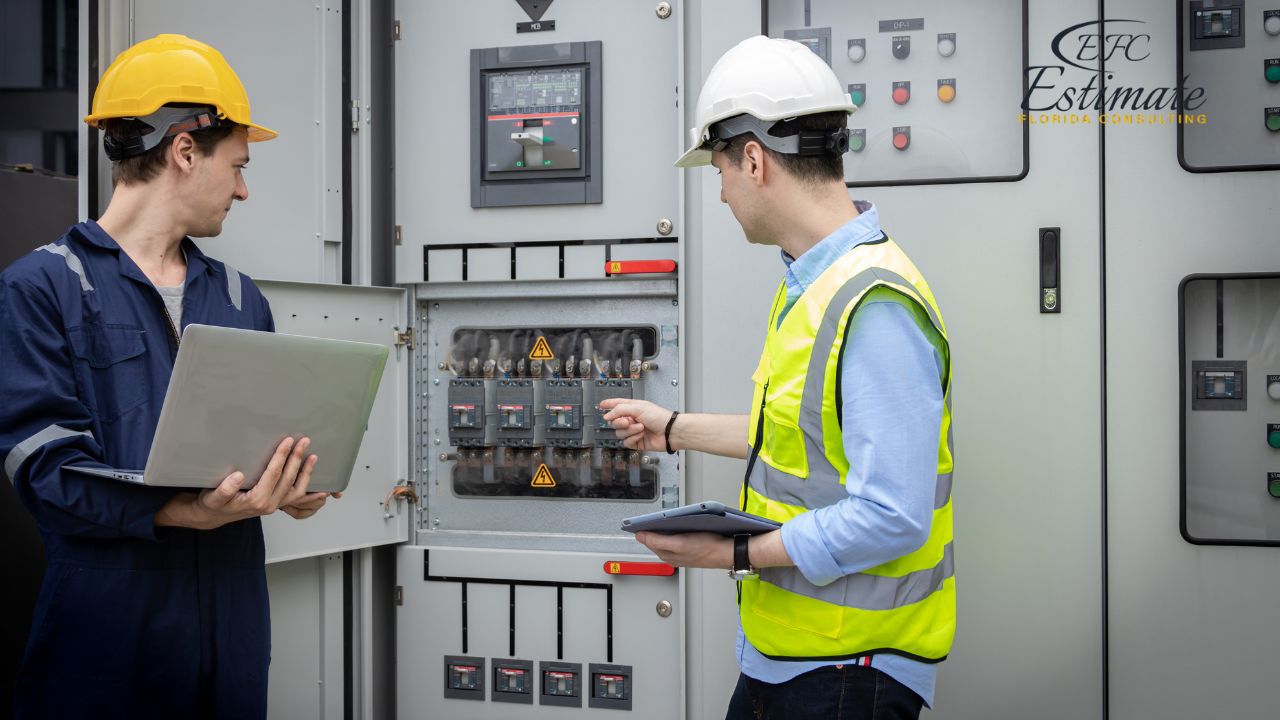
Conclusion
Electrical systems are vital to any building project in Jacksonville Beach. By understanding cost factors, exploring advanced options, and working with licensed professionals, you can achieve a reliable and efficient system within your budget. Proper planning and the integration of modern technologies like smart systems and renewable energy solutions can significantly enhance the value and functionality of your property. At Estimate Florida Consulting, we provide detailed electrical cost estimates tailored to your needs. Contact us today for expert guidance and customized solutions.
Frequently Asked Question
Estimating electrical costs involves calculating the required materials, labor, and other associated expenses for an electrical project. Start by identifying the scope of the electrical work, including the number of outlets, switches, light fixtures, and wiring needed. Then, determine the cost of materials, which could include cables, wires, breakers, and panels. Next, estimate the labor costs by considering the time required for installation, which can depend on the complexity of the project. You should also account for other potential costs like permits, inspections, and any specialized equipment required. It's essential to multiply the quantities of materials and labor hours by their respective costs to get a detailed electrical cost estimate.
Electrical estimating and costing is the process of determining the overall financial requirements for an electrical installation or project. This includes assessing the cost of electrical materials (such as wires, conduits, lighting, and panels), estimating labor costs based on the project’s size and complexity, and factoring in any overhead or additional expenses like equipment rentals or permits. Electrical estimating involves calculating all these costs and generating a detailed estimate that can be used to create a budget or proposal. Electrical costing ensures that the project remains financially feasible and is completed within the allocated budget.
An electrical estimator is a professional who specializes in determining the cost of electrical projects. Their role involves reviewing project plans, assessing the materials and labor required, and calculating the total cost for electrical work. Electrical estimators are responsible for creating detailed estimates, including material quantities, labor hours, and cost of equipment. They also factor in potential contingencies and project-specific variables. These estimators may work on residential, commercial, or industrial projects and must be well-versed in electrical systems, pricing models, and construction schedules to ensure accurate estimates. Their work is essential for budgeting, bidding, and ensuring the financial success of electrical projects.
Electrical estimating is crucial because it helps contractors and clients accurately determine the financial requirements for a project. By providing a detailed cost breakdown, electrical estimators can prevent cost overruns, ensure proper budgeting, and guide decision-making. Accurate estimates also help avoid underpricing or overpricing a project, ensuring the work is completed within the financial constraints and meets the project's scope. It also helps in creating competitive bids for electrical contracting jobs.
Electrical estimators calculate labor costs by first determining the total number of hours needed to complete the job. This involves estimating the time required for each task (e.g., running wiring, installing fixtures, troubleshooting systems). The total labor hours are then multiplied by the hourly wage of the electrical workers. Factors like overtime, the number of electricians required, and the complexity of the project can all influence the labor cost.
Comprehensive Trade-Specific Estimates
At Estimate Florida Consulting, we offer detailed cost estimates across all major trades, ensuring no part of your project is overlooked. From the foundation to the finishing touches, our trade-specific estimates provide you with a complete and accurate breakdown of costs for any type of construction project.

Testimonials
What Our Clients Say
We take pride in delivering accurate, timely, and reliable estimates that help contractors and builders win more projects. Our clients consistently praise our attention to detail, fast turnaround times, and the positive impact our estimates have on their businesses.
Estimate Florida Consulting has helped us win more bids with their fast and accurate estimates. We trust them for every project!

Steps to Follow
Our Simple Process to Get Your Estimate
01
Upload Plans
Submit your project plans, blueprints, or relevant documents through our online form or via email.
02
Receive Quotation
We’ll review your project details and send you a quote based on your scope and requirements.
03
Confirmation
Confirm the details and finalize any adjustments to ensure the estimate meets your project needs.
04
Get Estimate
Receive your detailed, trade-specific estimate within 1-2 business days, ready for your project execution.





